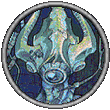| 04-14-14, 08:44 PM | #1 | |
|
A Flamescale Wyrmkin
Join Date: Aug 2009
Posts: 124
|
Blizz metamethods
__________________
__________________ Last edited by Aanson : 04-14-14 at 08:51 PM. |
|

|
| 04-15-14, 09:29 AM | #2 |
|
__________________
Grab your sword and fight the Horde! |
|

|
| 04-15-14, 05:58 PM | #3 |
|
__________________
Retired author of too many addons. Message me if you're interested in taking over one of my addons. Donít message me about addon bugs or programming questions. |
|

|
| 04-16-14, 08:27 AM | #4 | |
|
A Flamescale Wyrmkin
Join Date: Aug 2009
Posts: 124
|
__________________
__________________ |
|

|
| 04-16-14, 09:30 AM | #5 |
|
__________________
"I have not failed, I simply found 10,000 ways that did not work." - Thomas Edison |
|

|
| 04-16-14, 10:26 AM | #6 |

|
| 04-16-14, 11:00 AM | #7 |

|
| 04-16-14, 11:27 AM | #8 |
|
Last edited by Duugu : 04-16-14 at 05:46 PM. |
|

|
| 04-17-14, 05:35 AM | #9 | |
|
A Flamescale Wyrmkin
Join Date: Aug 2009
Posts: 124
|
__________________
__________________ Last edited by Aanson : 04-17-14 at 05:46 AM. |
|

|
| 04-17-14, 05:39 AM | #10 | |
|
A Flamescale Wyrmkin
Join Date: Aug 2009
Posts: 124
|
__________________
__________________ |
|

|
| 04-17-14, 05:52 AM | #11 |
|
Last edited by Sharparam : 04-17-14 at 05:58 AM. |
|

|
| 04-17-14, 06:05 AM | #12 | |
|
A Flamescale Wyrmkin
Join Date: Aug 2009
Posts: 124
|
__________________
__________________ |
|

|
| 04-17-14, 06:07 AM | #13 |

|
| 04-17-14, 06:09 AM | #14 | |
|
A Flamescale Wyrmkin
Join Date: Aug 2009
Posts: 124
|
__________________
__________________ |
|

|








 Linear Mode
Linear Mode

